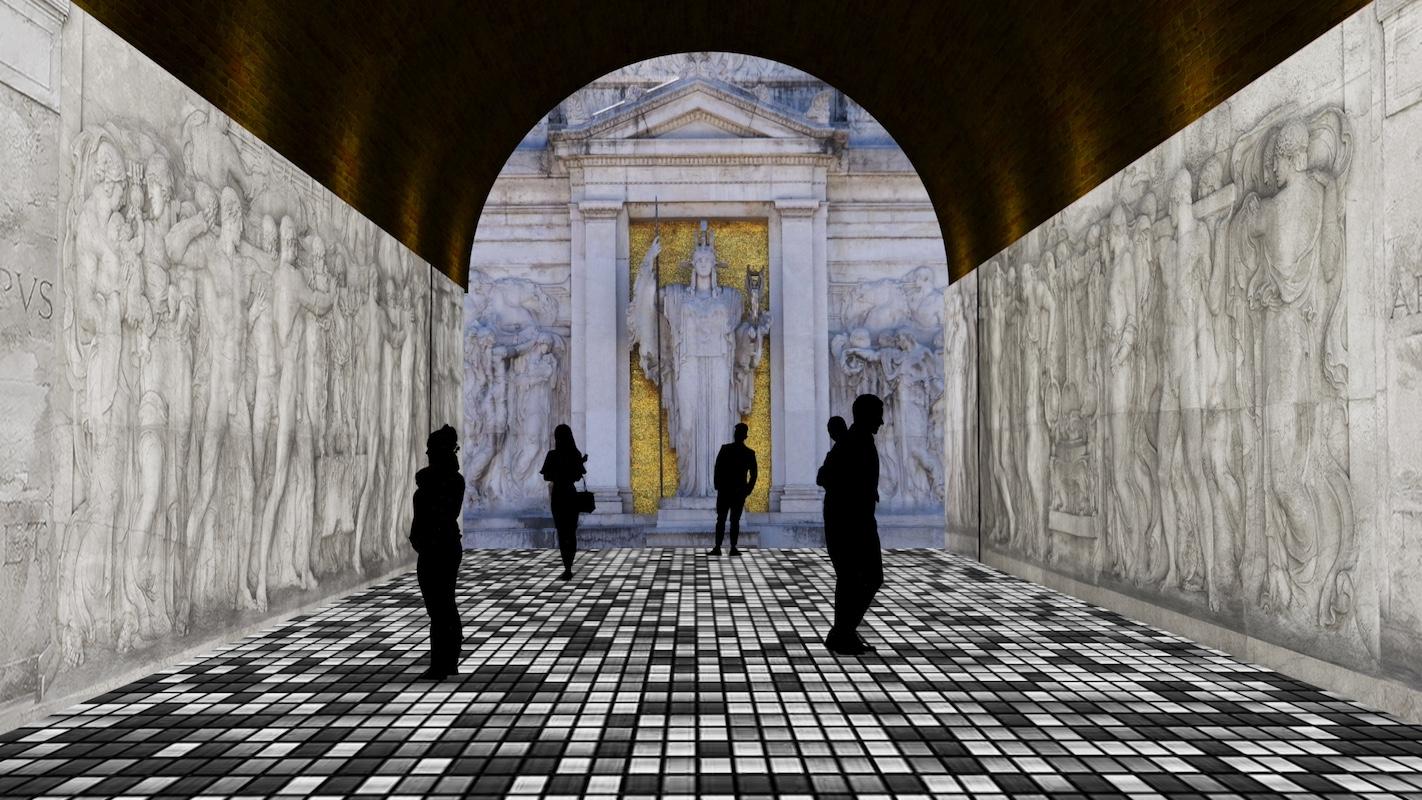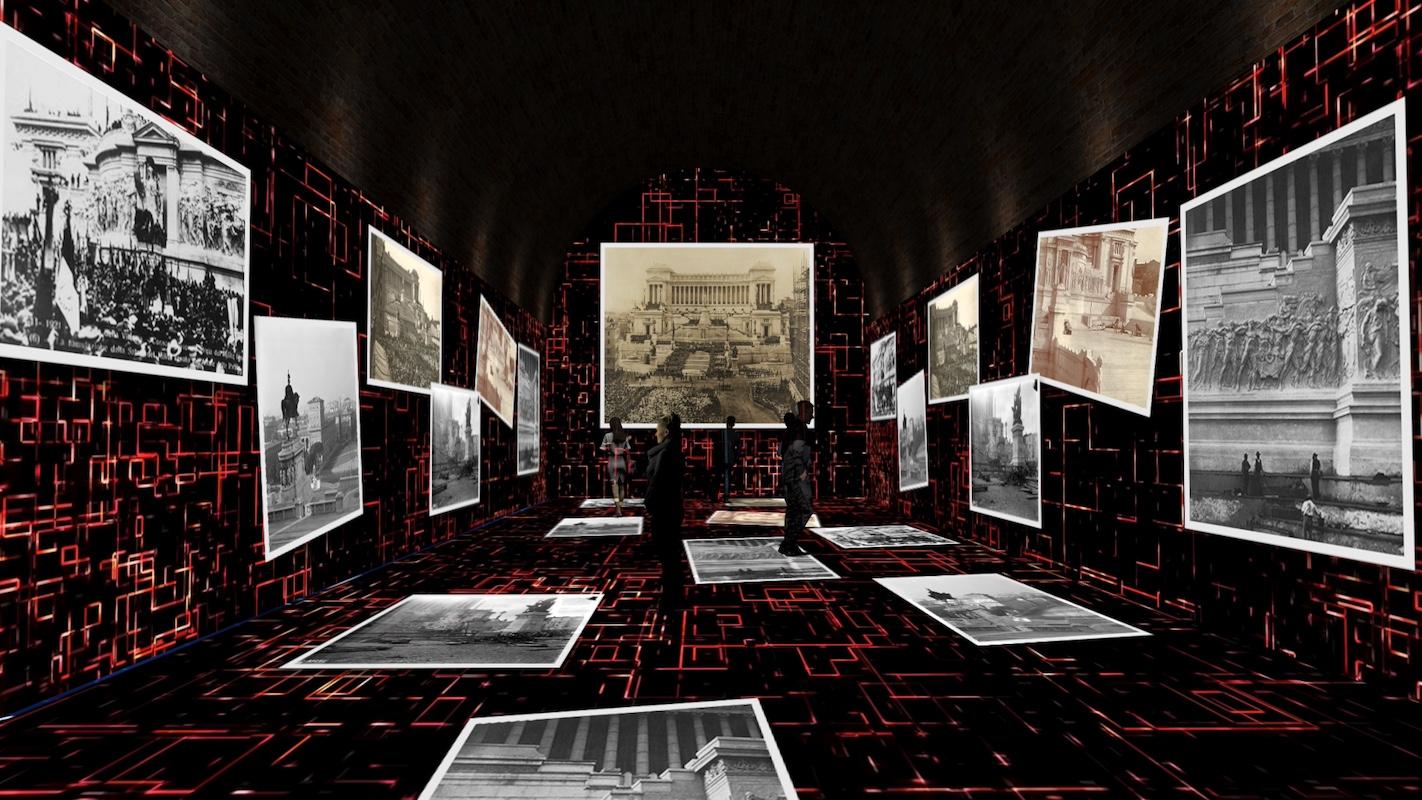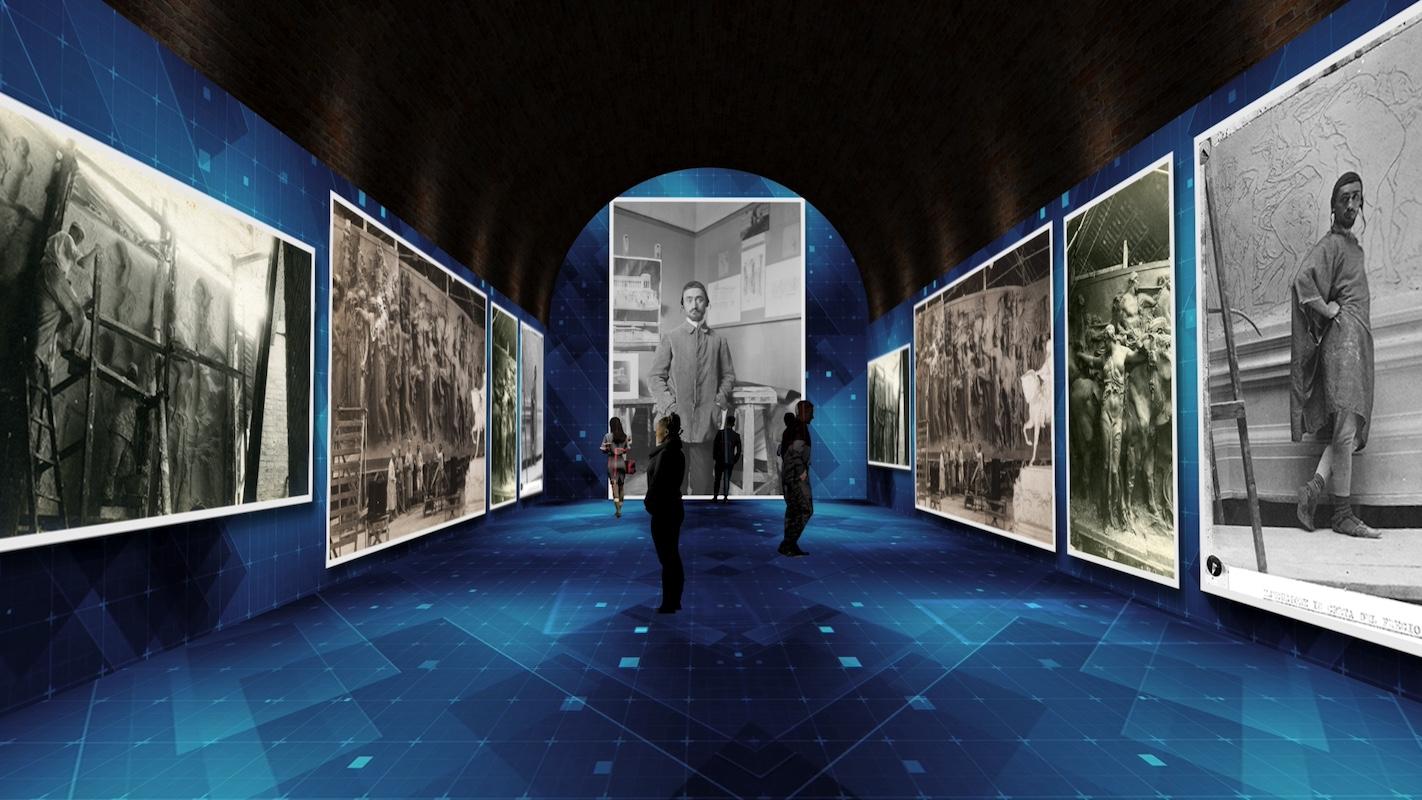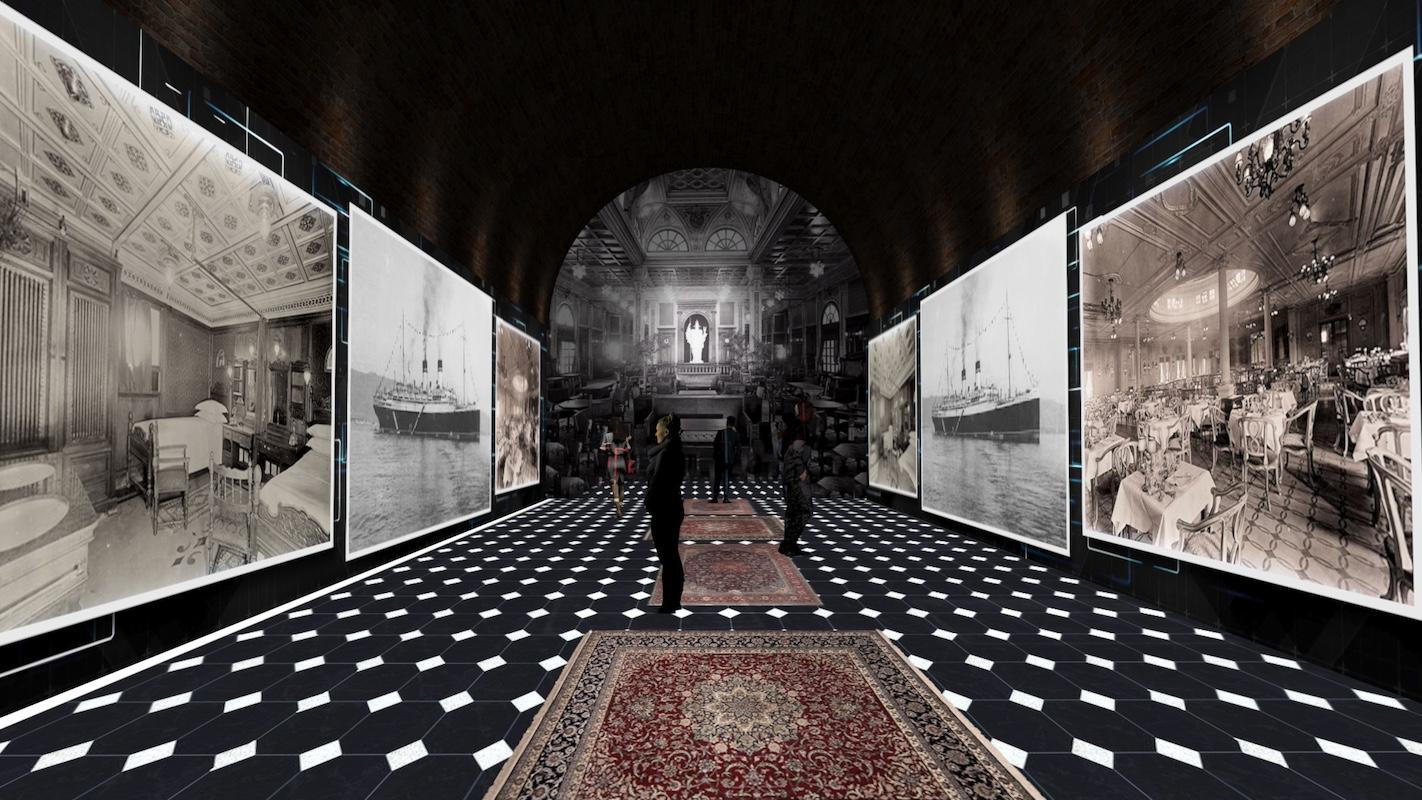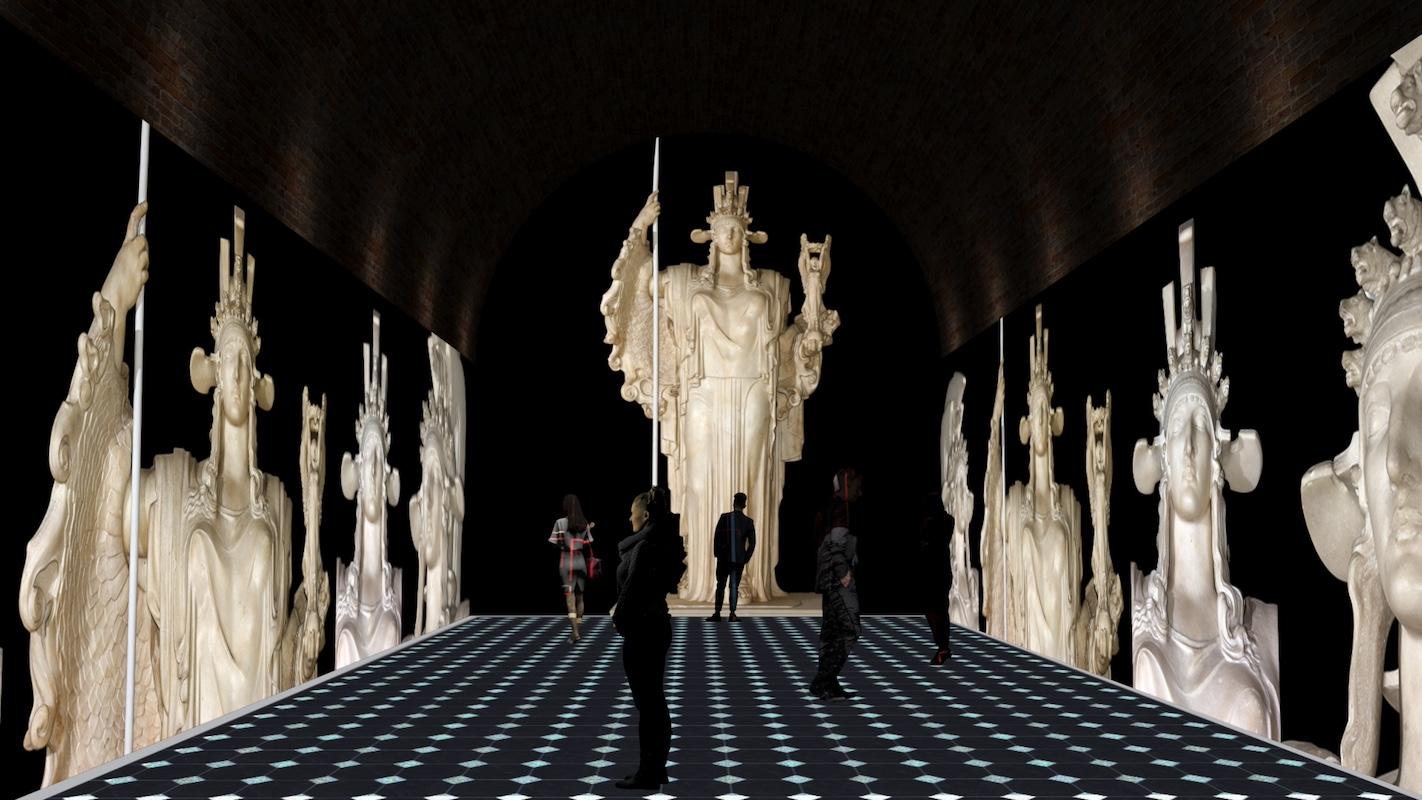The exhibition route ends in an immersive reality room as is customary in focus exhibitions. The impact of digital technology means that visitors will enjoy a captivating experience.
The multimedia installation begins with period pictures of the inauguration ceremony of the Altar of the Fatherland on 4 June 1911, on the 50th anniversary of Italian Unification. It then shows when the plaster frieze of the Altar of the Fatherland was displayed, modelled by Angelo Zanelli, winner ex aequo with Arturo Dazzi of a competition held in 1908. The display of the two friezes, life-size plaster models mounted on tracks so as to be easily moved, served to assess its effect in relation to the whole monument.
Angelo Zanelli was just 32 years old when his commission to create the frieze for the Altar of the Fatherland in Botticino stone was confirmed, a feat that occupied him and a large group of form-makers, modellers and stonemasons – photographed inside sheds at Porta Maggiore – from late 1911 to 1925 when the Goddess Rome was finally installed.
The illustrated journey ends with a photographic campaign by Mauro Magliani showing the frieze after restoration, admirable both as a monumental whole and for its boundless and extraordinary sculptural and colour detail

